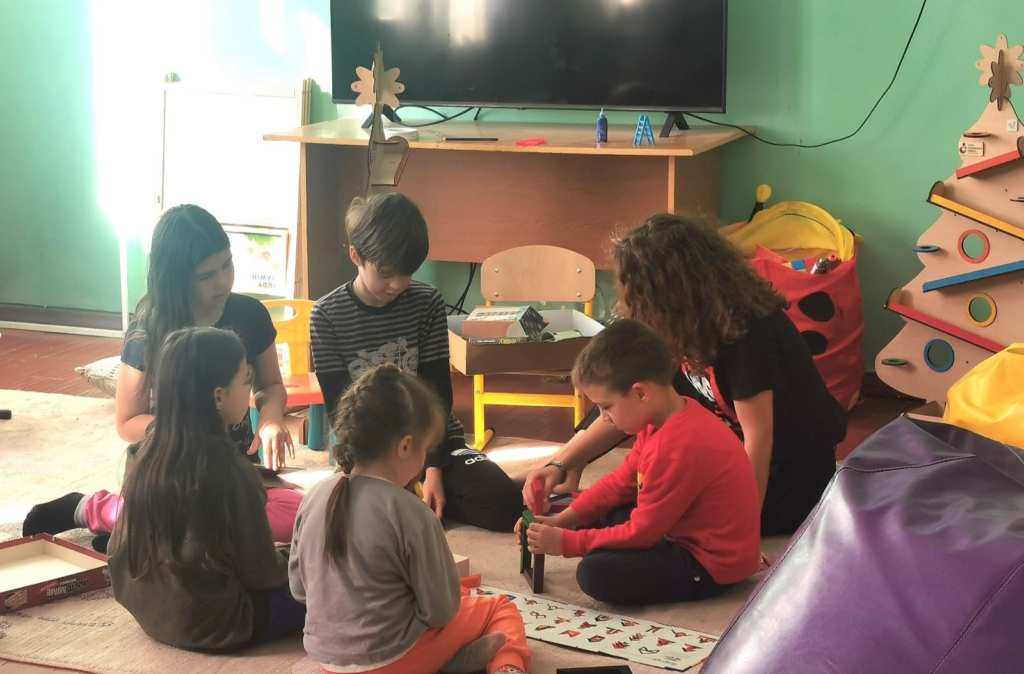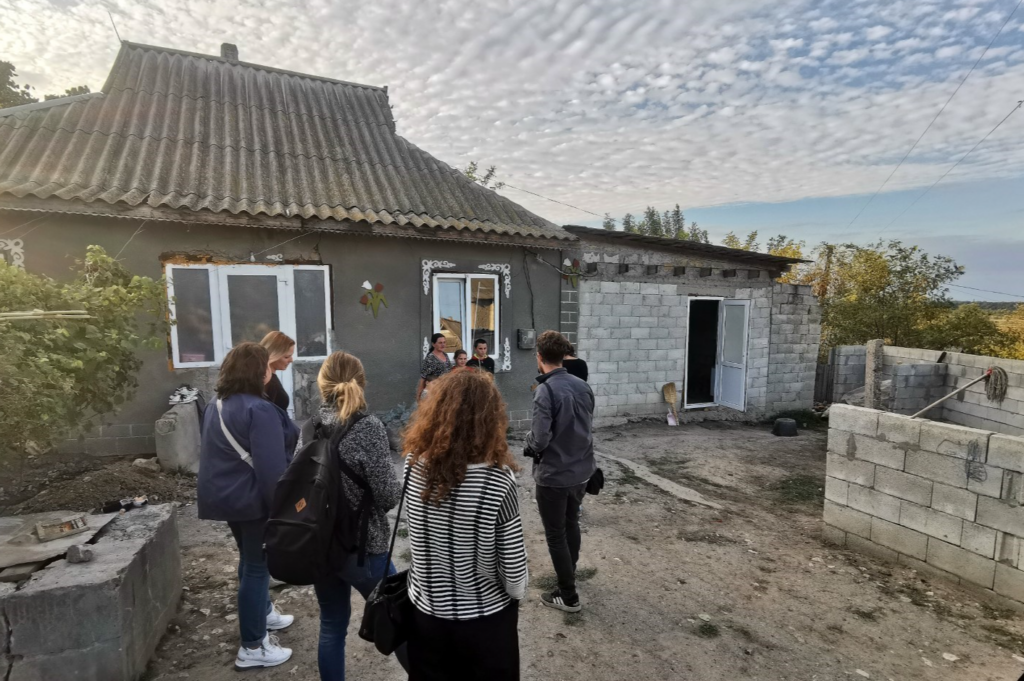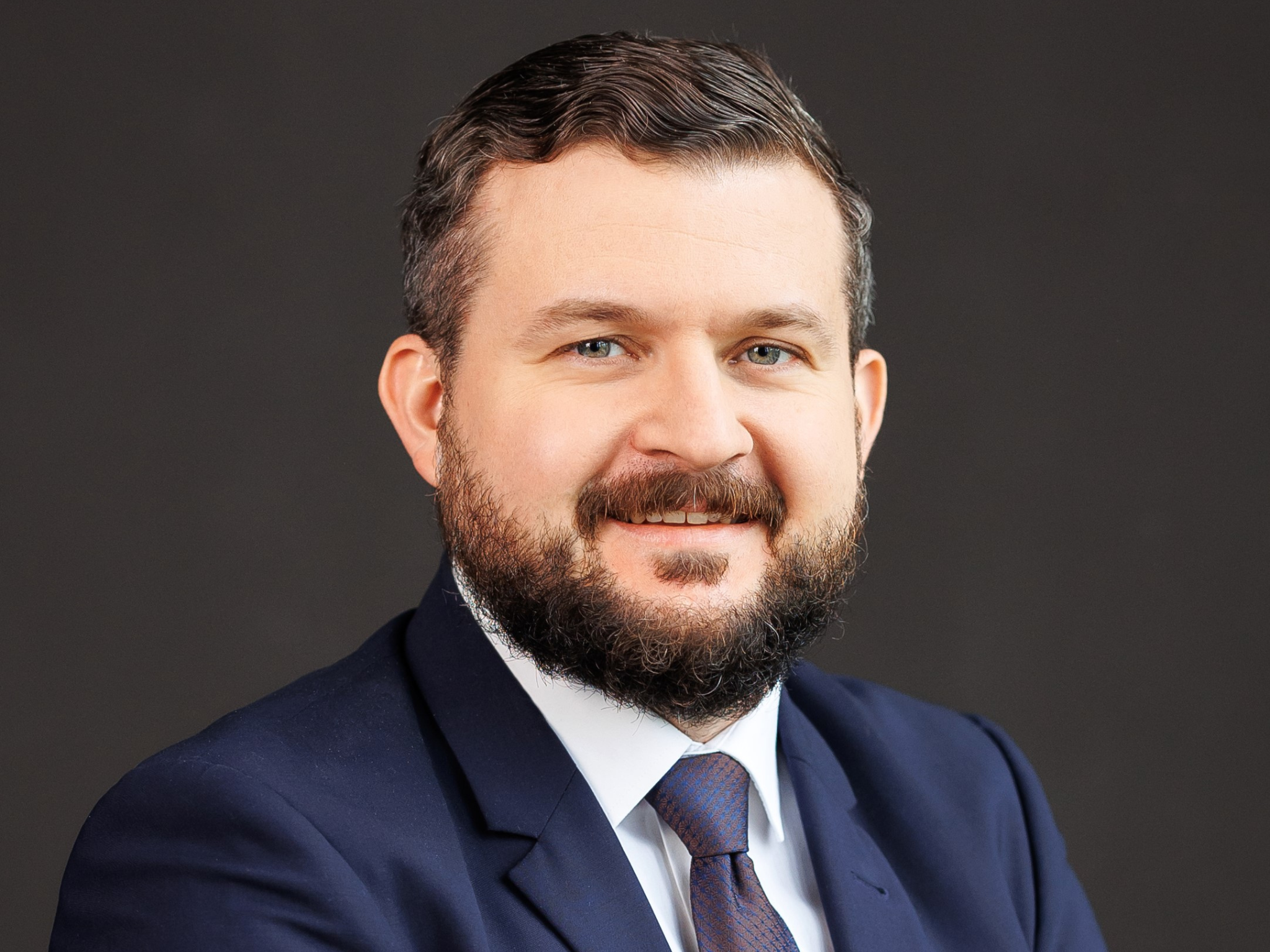Dragoș is our National Fundraising Officer from our partner organisation in Moldova. He recently travelled across the country to visit Ukrainian refugee families, particularly children, and hear stories of what they’ve been through. Here he shares his reflections and three stories which stood out for him.
We travelled 2,000km through the cities which have Accommodation Centres for Refugees, and through the villages where refugees are living within the local community.
The stories we heard moved us to tears. I don’t think there’s anyone on the face of this earth who would stay indifferent while a 13-year-old child explains how the school he used to go to was recently destroyed by a missile.
Nadejda’s story – hope amid the explosions
In a small town in the north of Moldova, in an old house, a family from Nikolaev, in the south of Ukraine, found their refuge. Or rather, part of the family found refuge — the mother, her two children and their grandmother. The father stayed in Ukraine, as he was not allowed to leave the country. The boy is 13 and his younger sister is only eight months old. The story of the baby shook me enormously.
On 24 February, when Russia attacked and invaded Ukraine, Daniela*, the mother, who was pregnant at the time, suffered a shock from the explosions, which caused her to give birth prematurely.
So, on 25 February, underneath the sound of explosions in the bomb shelter of a maternity hospital in Nikolaev, a little baby girl was born. The girl was given a very inspiring name — Nadejda, which in English means ‘Hope’.
A few weeks after the start of the war, for the sake of her children, Daniela fled Ukraine with the children and their grandmother and took refuge in Moldova, where some relatives offered them a house to stay in temporarily.
The family may not have the best living conditions. But they do have a clear and peaceful sky above their heads, and the help of Hope and Homes for Children and CCF Moldova, who are providing them with food vouchers, hygiene products and the support they need to have a safe and healthy life.
Dragos looking after eight-month-old Nadejda, whose name means ’Hope’, outside the house where they’re currently staying with relatives.
Photo: Hope and Homes for Children
Two young brothers and their dog
During a visit to a Refugee Accommodation Centre (RAC) in the village of Cojusna, about 30 km from the capital, Chișinău, I talked to several refugees to find out their stories.
I was touched by a story of two brothers from the Odesa region, who are five and eight years old. They were with their mother, who told us that she resisted leaving when the city and the region were initially bombed, but in the end, the relatives insisted that she and the children leave Ukraine for their safety.
The children are happy in Moldova. The eldest is in the 2nd grade and takes online lessons. They also had a big black dog there with them in the centre. When I asked about the dog, the children excitedly told me how they played with it, and how they brought it from Ukraine. But they were also sad because there was another dog the family had left back home in Odesa. They had to choose which dog to take, as it was almost impossible to leave Ukraine with luggage and two dogs.
However, the sadness of the story did not last long because more children soon appeared in the corridor, and they all started running through the halls of the building as if it was a competition.
Children don’t need much to be happy. But what they do need is peace, safety, family and support.
This centre is just one of 7 Refugee Accommodation Centres that we’re supporting across the country, providing fun activities, setting up playgrounds, providing psychological support to children and their parents, and offering vouchers for food and hygiene products. All families are monitored by social workers from the community and in difficult cases, they refer families to us for additional support.

Four sisters who escaped by train
In a village in the north of Moldova, inside a house with an enormous yard, I met four sisters from Zaporozhye. Their history is worthy of a Netflix movie.
Zaporozhye is one of the most bombed cities and regions in Ukraine, and the sisters had no choice but to leave. Of the four, only one is 18. So she is the legal guardian of the other three girls.
The girls told me how they escaped by train from Zaporozhye in Eastern Ukraine, to Lviv, in Western Ukraine. Because the train was so packed, especially with older people and mothers with babies, the girls had to stand on their feet for the entire two-day journey until they reached their destination. After arriving in Lyiv, they decided to leave Ukraine and took refuge in the north of Moldova, where they had some relatives who provided them with a house.
While I was talking to them, one was doing an online lesson with her teachers who were still in Ukraine. Suddenly, the teacher announced that she would have to pause the lesson so she could retreat to the bomb shelter. The alarm was ringing in the city — a sign that missiles were coming. The children watched all of this online, in real-time.
The girls were sad, as they spoke to me. Considering what they’ve been through, this is more than expected. But the insanity of their case truly shook me.
Since the girls left the Zaporozhye region, which was still part of Ukraine at the time, to take refuge in Moldova, Russia annexed the Zaporozhye region and declared it Russian. Technically, that means that if these children decide to go back home today, they would be returning to a territory already annexed to another country.
However, the Ukrainian army now currently controls the sister’s hometown. Although it’s still bombarded every day, the sisters can still talk daily with their colleagues and friends still living there, so they are aware of the news.
One of the many ugly parts of war is that it turns children into adults, prematurely. This was something that was incredibly apparent as I visited refugee children in Moldova.
With support, I hope we can create a future where all children in Moldova are happy, safe and thriving.

These children are now ‘our’ children
I started work as a National Fundraising Officer at CCF Moldova in May 2022. I returned to Moldova after five years of living abroad to get involved with helping Moldovan children. I did this because I understand the realities and poverty in Moldovan society.
The war in Ukraine and the 100,000 refugees (half of them children) who came to Moldova has put enormous pressure on our system and social services. Moldova’s social needs have doubled.
In my philosophy, there is no concept of “our children and their children” – I tell this to everyone. The tens of thousands of refugee children who entered the territory of the Republic of Moldova automatically became our children. And we have to take care of them.
As we get deeper into winter and the temperatures go down to freezing, our children and their families need even more support to stay alive, healthy and warm.
Author: Dragoș Galbur, National Fundraising Officer at Hope and Homes for Children Moldova / CCF Moldova
